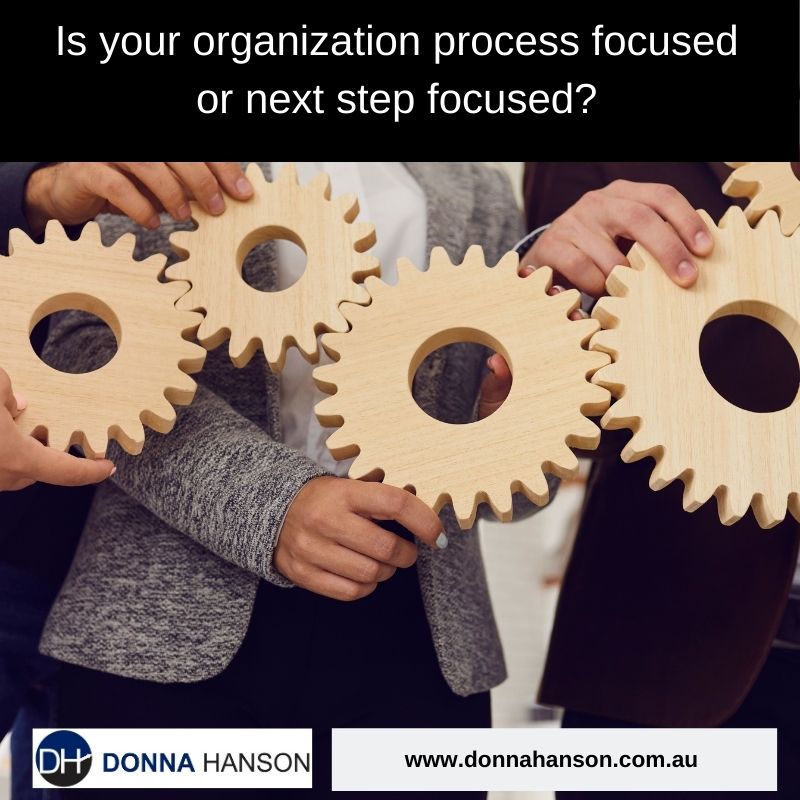Is your organization process focused or next step focused?

The manic nature of today’s workplace often impacts on our ability to effectively forward plan.
With pinging email and instant messaging, physical and on-line meetings, our attention is often fragmented.
Whilst projects and tasks are moved forward, there is often little time left for “real” work to be done leaving workers feeling stressed and overloaded.
The challenge in setting up workplaces is to successfully achieve tangible goals rather than working amongst the “busyness” or “noise” of electronic paper shuffling.
Often when working with clients, their default position is to focus on dealing with what seems, in the moment, the most pressing tasks or tasks as they arrive.
I call this type of focus next step.
Whilst this type of next step thinking a valid strategy, after a while it can end up feeling like it constant juggling of “hot potatoes”.
Dealing with matters important to others, but to the detriment of our own tasks and goals which can leave you feeling exhausted both physically and mentally.
It may seem counterproductive in the moment, but the old adage of “it takes time to make time” is more relevant now than ever.
A client reached out to me recently for help with an Excel spreadsheet.
It had evolved over time and they were struggling to get accurate information out of it.
It was taking them almost half a day of valuable client “face time” to get the data they needed out of it each month.
Rather than keep doing the same things and expecting a different result, Einstein’s Theory of Insanity, they recognised they needed help identifying what to do.
The client was a specialist in their area of expertise and by no means considered themselves an expert in Excel.
This regular data analysis process was merely one of the many tasks they were charged to do as part of their management role.
We discussed what the data looked like when they received it, along with what their desired outcome was. Then, like any “project” we deconstructed the steps and created a process.
It took less than an hour.
Given the task was undertaken only monthly, without a process, the risk was that the steps required to produce the data they needed could easily be forgotten.
The benefit of this type of process thinking is twofold.
Firstly, it provides a framework to follow that has been tested to work every time.
Secondly, it provides a structure that can be shared with team members who may also have a need for similar reporting.
Today’s workplace is fast paced with workers focussed on addressing what’s next rather than creating processes.
Unfortunately, it isn’t until someone leaves an organisation that those left realise, like Elvis, the internal capability has “left the building”.
So is your organization process focused or next step focused?
Want help getting process focused?
Schedule a discovery call with me – Click here.

